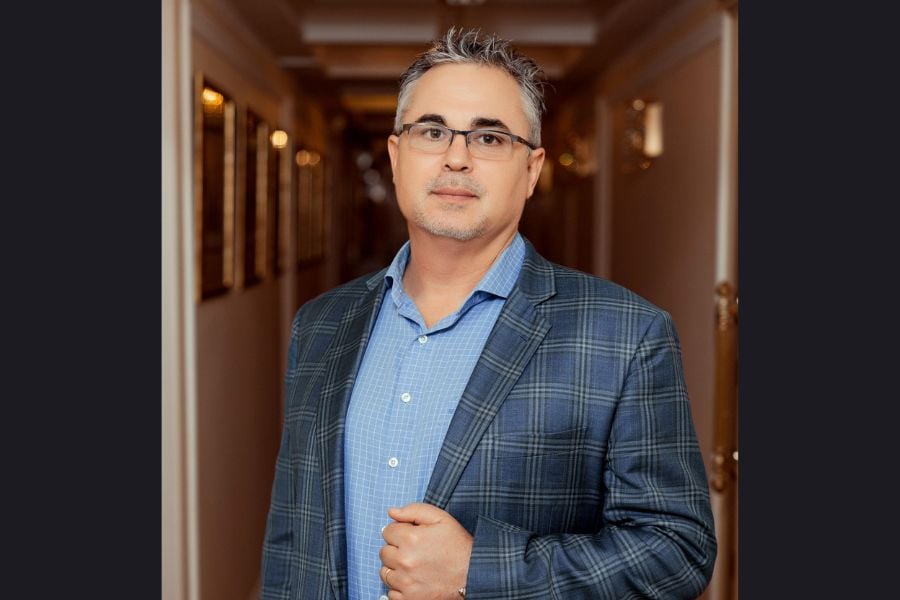

With escalating threats across Russia and the West, trade relations between the US and China, further disruptions in the Middle East and the ongoing Israel/Palestine war, some experts are warning that we’re closer to a world war than any time in the last 70 years.
And in today’s uneasy geopolitical landscape, the investment world is watching on with bated breath – especially high-net-worth individuals who have a lot to lose. Nuri Katz, founder of APEX Capital Partners, one of the leading authorities in the Citizenship by Investment space, tells InvestmentNews that the evolving dynamics of the global political and economic state is drastically spurring interest from North America in that little-known industry.
The catalyst for this surge appears to be the realization among Americans that the world is changing; freedom may not necessarily be taken for granted anymore. HNWIs also understand that wealth preservation is all about diversification of asset classes, currencies, and countries. Gaining citizenship in another country through investment is a form of personal diversification giving greater options than those who only have American citizenship.
“More and more Americans are looking at and participating in these programs, investing in citizenship, because since COVID Americans have started realizing that they’re not quite as free as they thought they were,” Katz says.
And again, the uncertainty surrounding political and social upheavals in the United States has prompted HNW individuals to seek alternative options. Katz cites the example of when President Trump closed off flights between Europe and the US – and just how useful a second passport can be in unforeseen situation like this. He noted that citizens of the small Caribbean country Antigua and Barbuda were able to travel for business and other purposes to Europe when Americans could not.
“High-net-worth individuals are getting nervous,” says Katz. “What we do is sell insurance, or a plan B. Most people buy life insurance for when they die; we sell life insurance for when they're alive.”
Katz remembers the events of January 6th, 2021 – when people stormed Capitol Hill because they wanted to keep Trump in office. While the events were unprecedented, we have seen similar scenes throughout history – all of which tend to lead to economic upheaval and mass uncertainty.
“A lot of high-net-worth individuals are thinking, ‘What if I’m unprepared? Anything can happen, and I need to be prepared. I need to have the ability to move somewhere else - to go somewhere. I need to do some jurisdictional hedging or jurisdictional arbitrage.' We’re seeing the number of Americans interested in these citizen programs doubling and tripling every year.”
Katz’s advice for wealth advisors dealing with these sorts of questions and situations is to remember to take an all-encompassing approach – do not just focus in on one element of the individual’s wealth, but also their personal situation as well.
“You're not only advising about what stocks to pick, or whether to buy some gold or silver or some other asset class; you need to take a whole holistic approach to the life of the person,” he tells Investment News.
“Some banks, for example, when they're advising their clients what to do, they only look at the money that's in the bank - they're not looking at all the other assets that are around. But a wealth advisor is somebody who's supposed to be looking at the totality of a person's life - looking at the short term, medium term and long term.”
A core and crucial component of this is risk mitigation – not only at how to make more money but to mitigate financial risk by diversification of assets. This could be bond stocks, real estate, cryptocurrency, art – anything in a client’s portfolio. And it’s important, again, not to measure everything in US dollars.
“The US government is [in] debt [for] $35 trillion,” adds Katz. “At the end of the day, the only way to repay that debt is by raising inflation and creating cheap dollars – so that you can pay it off. And so you [also] need to be diversifying your currencies as well. Keeping all of your money just in US dollars is a huge, huge, huge risk, not to mention keeping your whole life in just one country”
Compound all of these factors with the additional risk of social unrest, and the case for in investing in a ‘plan B’ seems watertight.
“Having a plan B or a place to go for what is a relatively low price for a high-net-worth individual is an important part of any wealth planning strategy,” says Katz. “These are conversations that I have when you see wealth managers generally look just at a certain part of their client’s life instead of looking at the totality of their life. Many wealth managers in the US are very focused on America instead of being globally focused. We're in a global world, and investing in France, or in Zimbabwe, or in Indonesia, can be just as attractive as investing in New York, Texas or California.
“It’s very important for Americans to start looking at and understanding that there we live in this tiny village of the globe," he says. "You need to have a view of what's outside of the US because if you're only in the US, then your risk level is incredibly high, both personally and financially.”

Executives from LPL Financial, Cresset Partners hired for key roles.

Geopolitical tension has been managed well by the markets.

December cut is still a possiblity.

Canada, China among nations to react to president-elect's comments.

For several years, Leech allegedly favored some clients in trade allocations, at the cost of others, amounting to $600 million, according to the Department of Justice.
Streamline your outreach with Aidentified's AI-driven solutions
This season’s market volatility: Positioning for rate relief, income growth and the AI rebound
